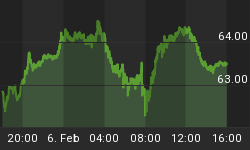Elon Musk perhaps wants to take over Twitter for some $43 billion, but share price movements suggest that this is either being viewed as another Musk gimmick or an end-game shareholders aren’t keen on.
Musk’s unsolicited takeover offer on Wednesday of Twitter for $54.20 a share, which is far lower than last summer’s $70/share valuation, also came with his very loud suggestions that the social media giant was not coming close to harnessing the true potential of a platform that has 200 million users daily.
"I invested in Twitter as I believe in its potential to be the platform for free speech around the globe, and I believe free speech is a societal imperative for a functioning democracy," Musk wrote. "However, since making my investment I now realize the company will neither thrive nor serve this societal imperative in its current form."
Earlier in April, Musk announced his purchase of a 9.1% share of Twitter, but then turned down a position on the company’s board of directors. That alone had employees nervous, according to various media reports.
By Thursday afternoon, Musk was already starting to downplay his takeover bid, suggesting that he was “not sure” he would actually be able to buy the company, validating those skeptics who saw this as another potential publicity stunt.
Not everyone’s on edge. Republicans will be cheering Musk on because he is calling for less moderation and no permanent bans, simply “time-outs” for bad behavior on Twitter. Democrats will view this as open season on the spreading of disinformation and hate speech.
Musk describes himself as a “free speech absolutist”. Giving him control of a platform with 200 million daily uses could arguably turn Twitter into a free speech platform in the extreme. Musk proclaimed that this wasn’t about money, but about creating a social media platform that is an “inclusive arena for free speech”.
“Twitter has become sort of the de facto town square, so it’s really important that people have both the reality and the perception that they’re able to speak freely within the bounds of the law,” Musk told a TED 2022 conference on Thursday.
In the end, the question really is whether human beings are evolved enough for a Musk-style free speech platform and the answer to that question boils down to pure politics and a very partisan understanding of what democracy is and how it is fostered.
Twitter employees are chiming in on whether Musk is a threat to social-media-induced ‘democracy’ or its main poster child.
One Twitter employee told TIME that while Musk’s “goals are aligned with ours in that we are certainly interested in protecting democracy”, his idea of bringing more free speech to the platform was naive.
“If you look historically, there have been a lot of platforms founded on this free speech principle, but the reality is that either it becomes a cesspool that people don’t want to use, or they realize that there is actually the need for some level of moderation,” the employee told TIME.
















